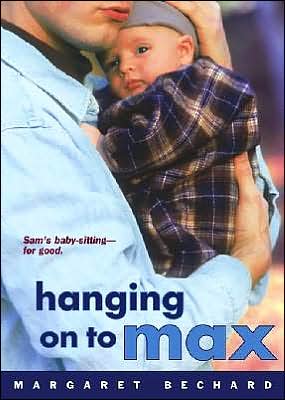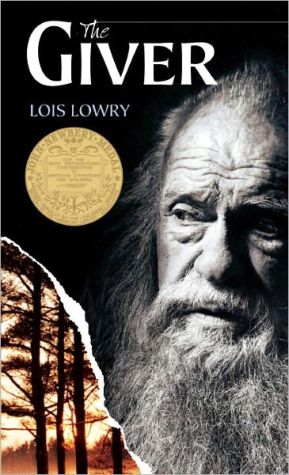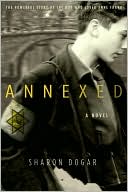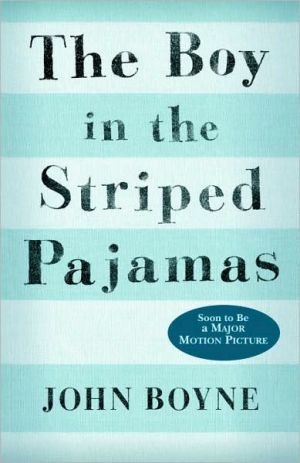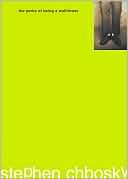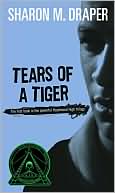Hanging on to Max
It's Sam Pettigrew's last year of high school. And he's spending it figuring out how, at age seventeen, he is supposed to care for his baby son, Max.\ Max wasn't part of the plan. He wasn't even part of the backup plan. But he's here now, and Sam is attending an alternative high school with other teen parents like himself. Talk about a wake-up call. But Sam is determined to make it work, to show everyone — his dad, his new girlfriend, himself — that he has what it takes to be a good dad.\...
Search in google:
Sam's girlfriend is pregnant — but Sam is keeping the baby. Sam should be planning for college and trying out for the football team with this best friend, Andy. Instead he's up to his ears in diapers and formula, caring for his baby son, Max. Will Sam now have to make a gut-wrenching decision about Max's future — and his own? A poignant and humorous look at an old problem...with a new twist.Publishers WeeklyA 17-year-old unwed father struggles to juggle his responsibilities as a parent and student. "The teen's conflicted perceptions of his role as father, friend and son are intermittently droll and wrenching," wrote PW. Ages 12-up. (Dec.) Copyright 2004 Reed Business Information.
Chapter One\ The total silence woke me up. I opened my eyes, slowly, and there they all were, watching me. Ms. Garcia, with her sad little worn-out smile. The rest of the class, grinning like monkeys. The room was almost dark, except for the light from the slide projector.\ "Nice nap, Sam?" Ms. Garcia asked. Everyone burst out laughing. Ooh. Good one, Ms. Garcia. Except what teacher in her right mind would turn out the lights and show slides at 1:30 in the afternoon?\ I shrugged upright in my desk. "Sorry." I shook my head, trying to clear it out.\ "Do you know what this slide is, Sam?"\ I squinted at the screen. "Jupiter?"\ People applauded. Someone in the back whistled. I rubbed my eyes. When I'd fallen asleep, there'd been a slide of a woman making cookies. Ms. Garcia's "Why We Should Study Math" inspirational slide show.\ "Okay," Ms. Garcia said, "in 1995 NASA sent a probe from the Galileo spacecraft down through the atmosphere of Jupiter." The slide projector clunked to a picture of the probe.\ "It looks like a giant tit," some guy said.\ Ms. Garcia sighed. "Okay. Well. The probe sent back a stream of data for 57.6 minutes, until the incredible pressure of the Jovian atmosphere crushed it."\ "Poor little probe," the girl next to me said.\ "Bor-ing," somebody in back said.\ I imagined the probe, analyzing, computing, while the weight of Jupiter pressed in heavier and heavier.\ "So," Ms. Garcia said, "do you think the scientists at NASA had to use math to design this probe? And to communicate with it?"\ "I'd rather design a giant tit," the guy in back said.\ Ms. Garcia sighed. The next slide was a Volvo. "Now back on Earth the safety engineers..."\ I put my head back down on the desk and closed my eyes.\ The bell woke me up. Kids were grabbing books and papers, cramming them into backpacks. Everybody talking at once. At the front of the room, Ms. Garcia was saying something about turning in the test papers from the beginning of class and something that was due next Wednesday. But nobody was listening. People were jamming up in the doorway, pushing to get out. "Test papers," Ms. Garcia said again.\ The guy who sat behind me, who always smelled faintly of sweat and cigarette smoke, slapped my back. "Hey, dude. At least you weren't drooling."\ "Right," I said. "Thanks." I stared down at my test. I'd finished it in the first ten minutes. And that had included checking my answers three times. I stood up slowly and shrugged into my backpack.\ As I dropped the paper on her desk, Ms. Garcia's hand snaked out and grabbed my wrist. "Give me a couple of minutes, please, Sam?"\ I glanced at the clock. "It's 2:30."\ "They'll wait for you."\ I sighed and moved out of the flow of kids. Good job, Sam. Two weeks into September and already you've ticked her off. Already you're blowing this. A kid stopped to explain why he'd done only the first three problems on the test. And then Marcella went into a long thing about how she was going to Mexico for two weeks and needed to know what she'd miss. I shuffled around a little, banged my foot against the garbage can, just to let them know I was still standing there, but nobody paid any attention.\ Finally the last kid left. Ms. Garcia ran her fingers through her hair. Her face was tense, like maybe she had a bad headache.\ "I've really gotta go, Ms. Garcia." I pointed to the clock. "And I'm sorry about falling asleep. It's just...we had a bad night last night. I didn't..."\ She waved her hand. "I know. I know. Everybody had a bad night last night." She leaned toward me. "The real problem here, Sam, is you don't belong in this class."\ I took a breath. "But this is the only math class that fits in my schedule. We went through this whole thing, Mrs. Harriman and me." Besides, I liked this class. I needed an easy class. I took another breath, deeper, slower. Don't panic here, Sam. Get a grip. "I need the credit. I have to graduate this year."\ Ms. Garcia tilted her head to one side and looked up at me. "I talked to Mr. Wright, Sam, yesterday. Your math teacher at Willamette View?"\ I nodded. Mr. Wright. He'd been okay. Andy had called him "Mr. Wrong," which was pretty dumb, but I'd always laughed, because it was Andy.\ "Mr. Wright loaned me a different text. It comes with a computer program. It'll let you work at your own speed."\ I laughed. My own speed? My own speed was like a dead stop. "You know, Ms. Garcia, I sort of dropped out of Mr. Wright's class."\ "But he says you had a good grasp of all the concepts. A very good grasp, he told me." She pointed to the iMac in the corner. "We can set you up over there. You can work on the computer in class and take the textbook home with you." She held it up, barely. It looked like it weighed about 500 pounds. "It actually gets into precalculus."\ I could tell she wanted me to be impressed, excited. "But..." I started.\ "And if you get stuck, I can help you out. I was a math major, you know." She smiled at me, her eyes big behind her wire-framed glasses. "I'm not saying it won't be hard work, Sam. But don't just say no. At least think about it." And her smile widened, a little desperate looking. Ms. Garcia, the math major, teaching bonehead math in an alternative high school. "I don't want to lose you, Sam. I think, if you were challenged more, you might sleep a little less."\ And who needed sleep? I took another breath. If it would make her happy, if I could stay in her class, if I could graduate like I was supposed to, what was one more thing? "Sure," I said. "Sure. I can give it a try." I took the book. It did weigh 500 pounds.\ She nodded, once. "Good. I'm glad, Sam. I don't think you'll regret this."\ It took me five minutes to get to my locker. The halls were packed with kids, goofing around, laughing, yelling. Typical end-of-the-day high.\ I jerked my locker open. It smelled funny. Gym socks? Rotting sandwich? I didn't have time to figure it out. I grabbed my English book and the stack of government worksheets. I stuffed them all into my backpack and slammed my locker shut.\ The secretary looked up from her monitor as I burst through the day care doors. "We'd about given up on you," she said, but she was smiling. They all smiled at me, all the time.\ "I had to talk to Ms. Garcia," I said. I shouldered through the door into the crawlers room.\ "Here he is!" Mrs. McPherson, the teacher, said. "Here's Daddy."\ Max leaned out of her arms toward me, his hands stretched out, his face red and swollen with crying.\ I took him. "Hey, buddy. It's okay." He wrapped his arms around my neck, taking a big hiccuppy breath, twining his fingers into the long hairs at the back of my neck. I patted him gently. "Let's go home."\ Copyright © 2002 by Margaret Bechard
\ Publishers WeeklyA 17-year-old unwed father struggles to juggle his responsibilities as a parent and student. "The teen's conflicted perceptions of his role as father, friend and son are intermittently droll and wrenching," wrote PW. Ages 12-up. (Dec.) Copyright 2004 Reed Business Information.\ \ \ \ \ VOYAThis short novel examines teen parenthood and how its responsibilities can interfere with students' lives. The twist in this story is that the parent is a boy. Sam is a basketball star with plans to go to college, but a fling with his girlfriend changes everything. Holding his newborn in the hospital, Sam knows he cannot give up his son, although his girlfriend has already decided to do so. With help from his father and aunt, he begins the life of a struggling single parent, attending an alternative school while losing his friends and lots of sleep. Sam faces sexism as the only male in the program and fights daily fatigue. Only a chance to take the SATs and a budding relationship with a young mother in similar straits keep him going. He promised to get a construction job when he graduated to help his father with expenses, but his scores encourage him to consider college. Baby Max is almost a year old and consumes the bulk of Sam's time and money. His girlfriend and her baby could become his new family—albeit one with many financial difficulties. He could choose a future that selfishly would include only himself. Sam's surprising decision involves a gut-wrenching look at his priorities. This book is a quick, easy read that touches upon many real-life issues. Some characters are a little underdeveloped and might be too good to be true, but the story will make the reader think, "What would I do?" PLB \ — Kevin Beach 0761315799\ \ \ KLIATTTo quote from the review in KLIATT, May 2002: This is a poignant story of a 17-year-old who wants to raise his baby son when the mother says she will give the baby up for adoption. With the help of his dour father and helpful aunt (Sam's mother is dead), Sam gets through almost a year with Max, his son. He had promised his father to "take responsibility," giving up his social life, sports, and plans to go to college. This novel tells about how Sam's life unravels in his senior year. Part of the catalyst comes when a teacher helps him prepare for the SATs and he studies with another teenage parent, Claire. The two teenagers get close and it seems like it could be easy to team up and become a family, raising their two babies together. A night out being "normal" teenagers, playing ball in the driveway, fixing a meal, ends in an accident and a trip to take Max to the emergency room. Although this isn't ultimately too traumatic, it proves to Sam that he has to rethink his decisions about being a father. Readers may not quite understand all of Sam's reasoning. It looks as though the plot is heading in one direction, but it veers sharply after this trip to the hospital. A final chapter, when Max becomes 18, helps us realize that Sam's ultimate decision is a wise one for himself and for his baby son. I'm not positive about the statistics, but would imagine that for cultural reasons, being a teenage father happens less frequently with white middle-class teenagers, because so frequently abortion is the option for teenage pregnancy in that group. Sam is white and middle-class; he would have been heading for college and a promising future, given his academic skills. Still, the story could work as acautionary tale (and it is a good story in itself) about the difficulties of parenting. (An ALA Best Book for YAs; ALA Quick Pick for Reluctant Readers.) KLIATT Codes: JS*-Exceptional book, recommended for junior and senior high school students. 2002, Simon & Schuster, 204p., Ages 12 to 18. \ — Claire Rosser\ \ \ \ \ From The CriticsSam fell in love with Max at first sight. And when Brittany admits the "mother thing" is not for her, Sam becomes custodial parent. At seventeen, it means that Sam must give up all his plans for his high school senior year and beyond: football, college and becoming a computer engineer. At his alternative high school, Sam is the only male single parent. And so he wonders: Is he right on course? Sam's father, a single parent himself (Sam's mother died when he was eleven), offers to help Sam finish high school and arranges for a job in construction afterwards. College is not in Sam's plans. Parenting, as Sam learns, is not easy, and every day brings another challenge to keep Sam from achieving success. Slowly, Sam realizes that his own life — now with child in tow — will never be the same. An easy read filled with practical wisdom, this book is highly recommended as an important edition for any adolescent classroom collection. 2002, Roaring Brook Press, 160 pp., Anne Webb\ \ \ \ \ School Library JournalGr 8 Up-Sam Pettigrew has transferred from his old high school to an alternative school for a very good reason. When his girlfriend wants to give their baby up for adoption, the 17-year-old assumes the role of custodial single parent of his son, Max. The story begins with Sam in his new role as father and moves back and forth between his current troubles and his earlier ones: the death of his mother, his emotionally distant father, and his peer relationships. Sam's world is generally a supportive one, full of friends, teachers, and family. However, he and his father made a deal; if Sam graduates and then goes on to work a construction job, he'll support Sam and Max for one year. There will be no college in Sam's future, even with his great SAT scores. The young man has taken responsibility for himself and his actions. However, he is still an ordinary teenager trying his hardest to do the right thing, the best thing for the tiny, much-loved son that transformed his life and possibly his future. As Bechard deftly shows, the choices made in small ordinary moments are as important as the big "turning points" in determining the course of a life. In a world where much of YA literature is fraught with "noir" plots peopled with dysfunctional characters caught in tragic situations, Hanging on to Max is a breath of fresh air. Bechard has written a poignant winner of a book peopled with human beings all struggling to make their lives work. And she has created in Sam an unforgettable and realistic protagonist full of heart and guts.-Jane Halsall, McHenry Public Library District, IL Copyright 2002 Cahners Business Information.\ \ \ \ \ Kirkus ReviewsA high-school senior copes with the challenges of taking care of a baby while trying to get a diploma and maintain a social life. As she did in If It Doesn't Kill You (1999)-which was about an adolescent boy dealing with his father's homosexuality-Bechard again takes on a challenging issue: teenage parenthood. But in a nice change of pace, Bechard's protagonist is that unusual breed of kid, an unwed father with sole custody of his infant son. Told in the first person by a youngster who has powerful feelings he has trouble expressing, the narrative neatly lays out Sam's dilemma-how to be a good father without completely sacrificing his dreams for the future. While many young adults in his situation are truly caught between a rock and a hard place, some of the obstacles Sam faces feel manufactured, giving the reader the sense that they could be ameliorated if he would just open his mouth and ask for assistance. The protagonist, who lives at home with his equally inexpressive father, is nicely foiled by two classmates, both teenage mothers, who help round out the situation and demonstrate the various experiences of young parenthood. A disconcerting resolution mars the piece, negating much of the action that came before it and leaving the unprepared reader unsettled and dissatisfied. Even so, the author should be commended for taking on a tricky topic, the demands, delights, and difficulties of being young, single, and a dad. (Fiction. 12+)\ \
